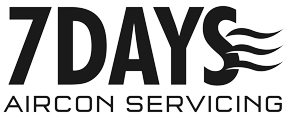
Air conditioning systems are a staple in Singapore’s climate, offering relief from the sweltering heat and humidity. At the heart of these systems lie aircon refrigerants, essential compounds that facilitate the cooling process. Understanding the nuances of aircon refrigerants is crucial for homeowners and businesses alike to ensure efficient operation and environmental responsibility. In this comprehensive guide, we’ll unravel the mysteries of aircon refrigerants, exploring their role, significance, and the implications for aircon servicing in Singapore.
**1. What Are Aircon Refrigerants?**
Aircon refrigerants are chemical compounds that undergo phase changes to facilitate the transfer of heat, resulting in cooling. These compounds circulate within the air conditioning system, absorbing heat from indoor air and releasing it outdoors.
**2. Types of Aircon Refrigerants:**
Several types of aircon refrigerants are commonly used, including R-22, R-410A, R-134a, and R-32. Each refrigerant has unique properties and environmental considerations.
**3. Functions of Aircon Refrigerants:**
– Cooling: Refrigerants absorb heat from indoor air, causing them to evaporate and cool the surrounding environment.
– Pressure Regulation: Refrigerants maintain pressure levels within the aircon system, facilitating efficient heat exchange.
**4. Importance of Proper Refrigerant Management:**
Proper refrigerant management is critical for maintaining aircon efficiency and environmental sustainability. It ensures optimal performance while minimizing environmental impact and health risks.
**5. Environmental Impact of Refrigerants:**
Refrigerants have varying degrees of environmental impact, with some contributing to ozone depletion and global warming. Transitioning to environmentally-friendly alternatives is essential for mitigating climate change.
**6. Challenges and Regulations:**
– Phase-Out of HCFCs: Many countries, including Singapore, have phased out the use of hydrochlorofluorocarbons (HCFCs) like R-22 due to their ozone-depleting properties.
– Regulatory Compliance: Compliance with regulations and industry standards is crucial for aircon servicing providers in Singapore to ensure safe handling and disposal of refrigerants.
**7. Safety Considerations:**
Proper handling and disposal of refrigerants are paramount to prevent environmental contamination and health risks. Trained technicians equipped with the necessary knowledge and protective gear are essential for safe aircon servicing.
**8. Energy Efficiency and Refrigerants:**
Choosing energy-efficient refrigerants can significantly impact aircon energy consumption and operating costs. Opting for higher-efficiency models and regular servicing can maximize energy savings.
**9. Future Trends in Refrigerants:**
The aircon industry is continuously evolving, with ongoing research and development focused on alternative refrigerants with minimal environmental impact. Adapting to these trends is essential for staying ahead in the aircon servicing sector.
**10. Consumer Awareness and Education:**
Educating consumers about the importance of proper refrigerant management and the benefits of environmentally-friendly alternatives is key to driving positive change in the aircon industry.
**Conclusion**
In conclusion, aircon refrigerants are integral to the functioning of air conditioning systems, playing a vital role in maintaining indoor comfort. Understanding the role and importance of refrigerants is essential for homeowners and aircon servicing providers in Singapore to ensure efficient operation, environmental responsibility, and regulatory compliance.
**FAQs**
1. **Why are refrigerants important for aircon systems?**
Refrigerants facilitate the cooling process by absorbing heat from indoor air and releasing it outdoors, ensuring comfortable indoor temperatures.
2. **What are the environmental concerns associated with certain refrigerants?**
Some refrigerants, such as HCFCs, contribute to ozone depletion and global warming. Transitioning to environmentally-friendly alternatives is essential for mitigating these concerns.
3. **How often should aircon refrigerants be checked and serviced?**
Aircon refrigerants should be checked and serviced regularly during routine aircon servicing to ensure optimal performance and compliance with regulations.
4. **Can homeowners perform refrigerant checks and servicing themselves?**
Refrigerant handling requires specialized knowledge and equipment, making it best left to trained technicians to ensure safety and compliance.
5. **What are the consequences of refrigerant leaks in aircon systems?**
Refrigerant leaks can lead to reduced cooling efficiency, increased energy consumption, and environmental contamination if not addressed promptly.
6. **Are there government regulations governing refrigerant usage in Singapore?**
Yes, Singapore has regulations in place to phase out ozone-depleting refrigerants and promote the use of environmentally-friendly alternatives.
7. **How can I ensure that my aircon servicing provider is compliant with refrigerant regulations?**
Choose a reputable aircon servicing provider in Singapore that adheres to industry standards, employs trained technicians, and follows proper procedures for refrigerant handling and disposal.
8. **What are some signs that my aircon system may have a refrigerant leak?**
Signs of a refrigerant leak include reduced cooling performance, ice buildup on the evaporator coil, hissing sounds, and visible signs of leakage around the unit.
9. **Can old aircon units be retrofitted with environmentally-friendly refrigerants?**
In some cases, older aircon units may be retrofitted with alternative refrigerants to improve efficiency and reduce environmental impact. However, it’s essential to consult with a professional technician to determine feasibility and compatibility.
10. **How can I contribute to environmental sustainability through proper aircon refrigerant management?**
By choosing energy-efficient aircon units, scheduling regular servicing, and opting for environmentally-friendly refrigerants, homeowners can reduce their carbon footprint and contribute to a more sustainable future.

